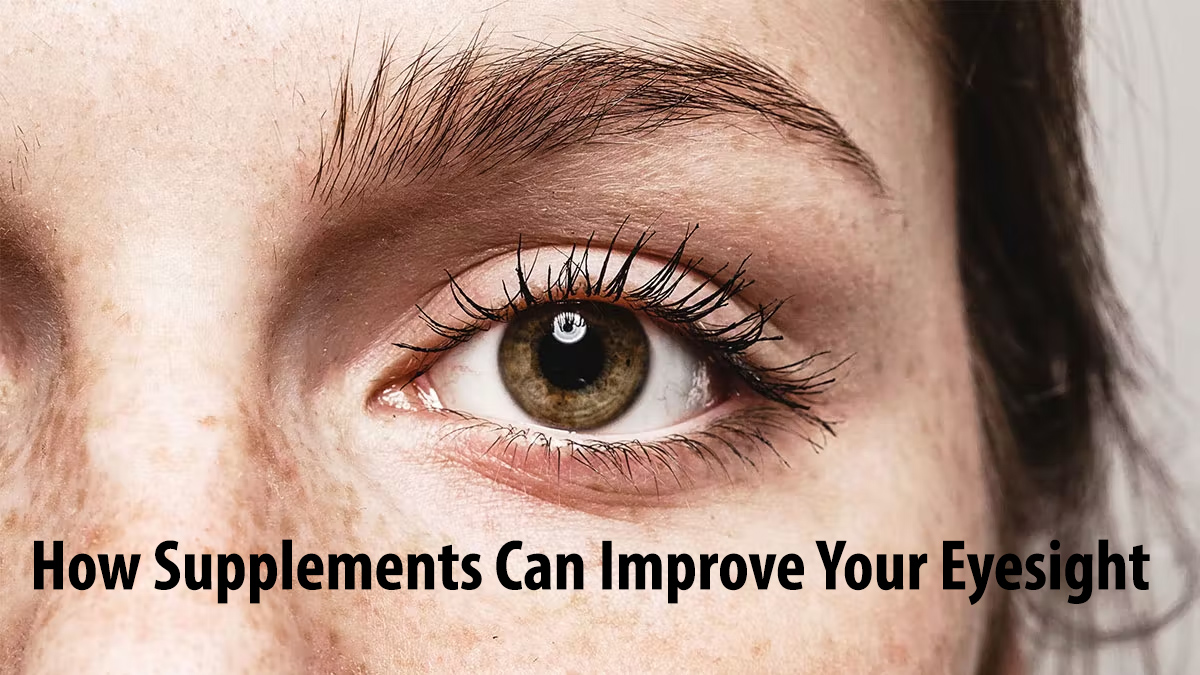Taking certain vitamins and minerals can help your vision. These include Vitamin B1, which reduces inflammation and antioxidants such as lutein and zeaxanthin. Other important vitamins and minerals include Vitamin C and E, which protect your body from free radicals and prevent age-related macular degeneration. These nutrients are essential for good eyesight, but they should not replace a balanced diet. Unless prescribed by a physician, they should not replace a balanced diet.
Lutein and zeaxanthin protect against cell damage
Both lutein and zeaxanthin are important nutrients for the health of the eyes. Both are found in green veggies and may help reduce the risk of age-related eye diseases such as macular degeneration and cataracts. These nutrients may also slow the progression of age-related macular degeneration, which damages the retina in the middle and takes away central vision. Research indicates that lutein and zeaxanthin work well with vitamins C and E.
While lutein and zeaxanthin are not required for good eyesight, the health of the macula lutea depends on the levels of both. Zeaxanthin helps protect the retina from free radical damage, while lutein is important for restoring and preventing macular degeneration. A good supplementation regimen can contain both of these nutrients.
Studies have shown that lutein has antioxidant properties. It has been shown to inhibit the formation of free radicals, which are harmful if their levels are not under control. Excess free radicals accelerate the aging process and contribute to diseases such as type 2 diabetes, heart disease, and cancer. Antioxidants help maintain a healthy level of free radicals in the body. Lutein is one such antioxidant, and it is naturally found in the macula and retina of the eye. This antioxidant helps to reduce the risk of chronic eye diseases, including age-related maculopathy, which are often the leading cause of vision loss in older people.
While there is no recommended daily intake for lutein and zeaxanthin, experts recommend that consuming six to 10 milligrams of the two nutrients daily. Higher doses may lead to yellowish skin pigmentation, while lower ones might be effective for healthy eyesight. In addition, the recommended amount of zeaxanthin is not known to interact with other drugs.
Vitamin B1 reduces inflammation
Researchers at the University of Texas Medical Branch at Galveston have developed a new method to improve eyesight by using vitamin B1 to treat an inflammatory eye condition called uveitis. Uveitis is an inflammation of the tissue located beneath the surface of the eyeball. It accounts for around 10 percent of all cases of blindness in the United States and is a leading cause of loss of vision worldwide. Normally, this condition requires treatment with steroid eye drops and antibiotics.
Research has shown that people who consume sufficient amounts of vitamin B1 are at a reduced risk of developing age-related macular degeneration. In addition, these vitamins are beneficial in reducing elevated levels of homocysteine, a substance that damages blood vessels in the eyes. Make sure to find a supplement that contains the B vitamins in their most absorbable forms. While the usual doses of these vitamins sit at 50 micrograms per day for B6, 800 mcg for B9, and 1/mg for B12, you’ll be able to absorb them all easily and quickly.
People with low levels of Vitamin B1 may develop Beriberi disease, a condition in which the brain lacks enough thiamine in the brain. While eating foods high in vitamin B1 can prevent thiamine deficiency, the risk of developing Beriberi disease is higher than normal. Fortunately, a new derivative of Vitamin B1 that has higher bioavailability, called Sulbutiamine, is available. Sulbutiamine is fat-soluble and crosses the blood-brain barrier more easily. Because it’s more bioavailable than thiamine, it’s also used by advanced neurohackers.
Vitamins A, C, and E are essential for eye health. Vitamin A, for example, helps prevent age-related macular degeneration and glaucoma, and deficiencies of these vitamins may increase your risk of developing these eye conditions. Supplements of these vitamins may also protect against these problems or delay their development. In addition to the vitamins essential for eye health, many of these nutrients also improve eyesight.
Vitamin C prevents age-related macular degeneration
Research has shown that Vitamin C can protect against macular degeneration, especially if taken in adequate amounts. The Food and Drug Administration recommends 90 milligrams of vitamin C per day for men and 75 milligrams for women. A higher dose may be needed for people with increased risk factors or a stressful lifestyle. However, some studies have shown that even 500 milligrams of Vitamin C per day can protect the macula.
Vitamin C, or ascorbic acid, is a powerful antioxidant present in many fruits and vegetables. It is essential for the production of neurotransmitters in the brain and retina, which are responsible for communication between the two. In addition to protecting the retina, vitamin C may help prevent age-related macular degeneration and other types of vision loss. A recent study found that 500 milligrams of vitamin C per day may reduce the risk of age-related macular degeneration.
Although the causes of age-related macular degeneration are complex, several factors are thought to be linked to the development of this disease. Age, genetics, and smoking have been linked to the disease. A healthy diet is important for this reason: it protects the body from the damaging effects of oxidants, which speed up the degeneration of cells. Antioxidants are important for keeping the cells healthy and fighting oxidation. Carotenoids, which are found in food, are highly effective antioxidants.
Among the foods that contain Vitamin C are fruits, vegetables, and dark green leafy vegetables. They are excellent sources of lutein, which slows down the progression of age-related macular degeneration. The antioxidants in these foods also help reduce the risk of developing other chronic eye diseases. Those who suffer from AMD need to be careful to avoid consuming egg yolks as the yolk contains cholesterol. A daily dose of Vitamin C may also help protect against the development of AMD.
Vitamin E protects against free radicals
Antioxidants are vital in protecting our body from the effects of oxidation. Free radicals are atoms that do not contain an electron. These atoms scavenge electrons from healthy cells in our body, causing damage that may not be reversible. Antioxidants are essential to our health in many ways, but the eye is particularly vulnerable to free radical damage. As antioxidants prevent free radicals from affecting the eye, they protect against the effects of age-related eye disease and improve eyesight.
A diet rich in fruit and vegetables is an important part of eye health. Brightly colored fruits and vegetables contain carotenoids, which are antioxidants. Beta carotene, for example, provides the yellow color of the macula, which protects the retina from damage from ultraviolet light. Vitamin E is an excellent antioxidant and may prevent the development of age-related macular degeneration and cataracts.
When eaten in high quantities, Vitamin E protects the cells in the eye from the effects of free radicals. Free radicals cause the breakdown of healthy eye tissue, which can lead to age-related macular degeneration and cataracts. Vitamin E is one of the most important nutrients for good eye health, and food sources of vitamin E include vegetable oils, nuts, wheat germ, sweet potatoes, and seeds. Omega-3 fatty acids are essential for proper visual development and retinal function. Cold water fish are the best source of omega-3 fatty acids, and they reduce inflammation, enhance tear production, and support the oily outer layer.
A daily supplement with 400 IU of vitamin E, which is the most effective antioxidant, can be beneficial for eyesight. A daily dose of vitamin E and antioxidants in a multivitamin can significantly reduce the risk of cataracts. While the data regarding the effectiveness of vitamin E and vitamin C supplements isn’t conclusive, it does appear to protect the eyes. Vitamin E may improve your eyesight by lowering homocysteine levels in the blood. In fact, a study showed that people who regularly take vitamin E and vitamin C daily reduced the risk of developing cataracts by 34%.
Vitamin B1 helps prevent cataracts
Researchers at the University of Texas Medical Branch in Galveston have developed a vitamin B1 supplement that could help people with a leading cause of blindness: uveitis. Uveitis is an inflammation of tissue below the outer surface of the eyeball and causes blindness in between 10 and 15 percent of the population in the United States. It is also associated with alcoholism and genetics. Previously, people suffering from uveitis had to rely on steroid eye drops and antibiotics. Now, the new supplement may have a potential to improve eyesight and prevent cataracts.
Vitamin B1 supplements have a range of benefits, including improved eyesight and reduced risk of age-related macular degeneration. Vitamin B6 and B12 are also antioxidants and have been proven to reduce the risk of glaucoma and cataracts. Vitamin B1 is also important for normalizing vision and is a preventative for diabetic retinopathy. Niacin, also known as vitamin B3, is an important antioxidant and may prevent cataracts.
Vitamin A is crucial for healthy eye functions. It is an important precursor of rhodopsin, a protein found in the retina. These photoreceptors detect light and initiate the visual process. While vitamin A deficiency is relatively rare in developed countries, it is common in third world countries with widespread malnutrition. By supplementing the diet with foods rich in vitamin A, people can improve their vision and prevent cataracts.
The vitamin B complex is a combination of vitamins B1, B2, B6, B12, folic acid, biotin, choline, and niacin. B12 is particularly important because it helps the eye fight free radicals. This is associated with decreased risk of cataracts and macular degeneration. Vitamin B1 supplements may also prevent age-related macular degeneration.

